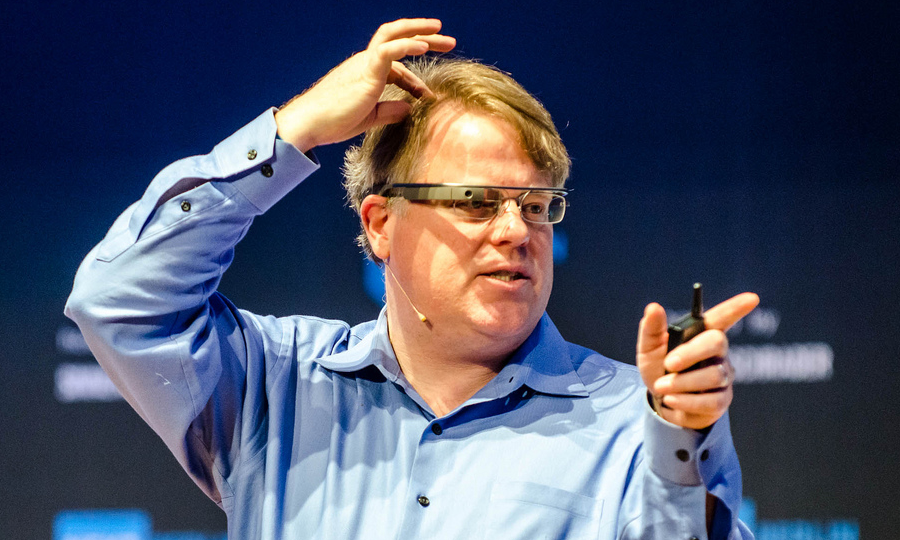Top Google Glass fan Robert Scoble is a fairly excitable personality and he’s written a fairly excitable post on his Google+ page discussing his fears that Google might be about his favorite headset the old heave-ho, much as it did to past products such as Google Wave and the Nexus Q. What set Scoble off this time was that Google CEO Larry Page took the stage to deliver a keynote at the TED conference Wednesday… and he wasn’t wearing Google Glass.
“Larry Page is on stage at TED right now. I’m at home watching. He is not wearing Google Glass,” Scoble writes, making sure to emphasize his point by putting the last bit in bold. “This fits the new narrative that’s going on in my head: that Google doesn’t know how to stick with a product. Remember Google Wave? It was a very interesting idea, but Google gave up on it very quickly. Why? Because it was controversial and the execution wasn’t good. Will Google stick with Glass? I’m starting to be very skeptical.”
Google has clearly invested a lot of both time and money into Google Glass, a project it first unveiled back in 2012. Google has also pretty clearly said that it’s still trying to figure out the best uses for Glass, which is why it sent out “explorer” editions of the headset to interested buyers more than a year before it planned to release it to the general public. Whether or not Google decides to market Glass to a mass consumer audience in the immediate future is certainly a valid question but it seems unlikely that the company will flat-out dump it like it’s done with other experimental products that haven’t worked out.
A Google spokesperson tells BGR that Scoble shouldn’t worry too much about the company’s commitment to Glass, although it did say that the device remains a prototype.
“We always appreciate feedback from everyone — even Robert — on how to make Glass better,” the spokesperson said. “In the last 10 months we have shipped nine new software updates and made three hardware updates based, in large part, on feedback from our Explorers. We continue to move quickly and are excited by what’s coming down the pike. Glass remains a prototype and we’ll keep improving it before making it more widely available to consumers.”






